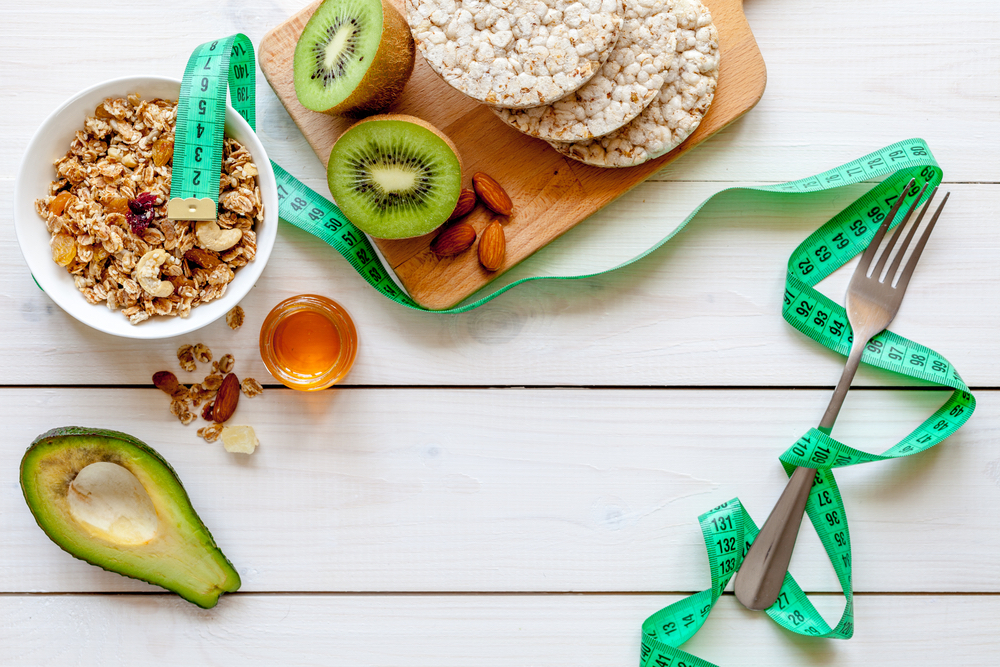
The 10 Rules of Weight Loss That You Must Follow
Many have tried and many have failed. Yup, losing weight is probably one of the modern era’s biggest struggles. With so many quick meals and options to choose from, it’s easy to fall into the trap to overindulge and gain a few. Here are 10 rules for losing weight that will aid you in your campaign to shed those unwanted pounds.
1. 100 Calorie rule

The math is quite simple, if you want to lose 10 pounds a year, you need to cut back on your calorie intake by 100. For most of us, this is easier said than done. Consistency is key though. Don’t overdo it. If you try and do more, you deprive your body of energy and you end up feeling hungrier and eating more. Take it slow, losing weight is not a race.
2. It’s a lifestyle
Many of us have tried a number of different diets, but end up just gaining the weight we lost and sometimes even more. Losing weight should be a lifestyle. Don’t shock your body with a sudden change in your daily food intake. You might lose your target weight, but with so many of us, old habits die hard. As soon as we get to our target weight we tend to revert to old eating habits.
3. Don’t skip breakfast

This is not the most important meal of the day for nothing. Your body needs an initial boost of energy to get going. Eating breakfast within the first two hours of the day kick-starts your metabolism and allows your body to digest your food at an ideal rate. If your breakfast is nutritious, you’ll have enough energy to last you quite some time and you won’t feel as hungry during the day.
4. Don’t get hungry
This might seem like a very odd rule, but when people are hungry, they tend to think with their stomachs. Rather eat more regularly, but manage your portions. Try and take one of your meals and split it in two to keep your body fuelled. It’s much easier for your body to gradually digest your meals and keep energy levels stable, than digesting a large amount and storing the released energy.
5. Cut on liquid calories

Unless you are super active and have the time to use the energy that you get from juices and sodas, rather stay away from them. Juices and sodas are high in calories and sugar and take next to no time to digest. The problem is that your body can’t use that energy and you end up gaining more weight through your drinks than your foods.
6. Go natural

Your body was designed to digest natural foods, any alterations and added chemicals is not your body’s friend. Rather try and keep your meals as natural as possible. Adapt eating habits that encourage you to eat fruits, veggies and whole grains. Anything that was processed tend to lack fiber and usually has more calories than the natural original. Again, take it slow, start to make natural foods an eating habit rather than a diet quick fix.
7. Exercise right
With anything good in life, you need to maintain a healthy balance. When people want to lose weight, they immediately turn to cardio workouts and tend to neglect strength training. According to Professor Lance Dalleck from Western Colorado State University, strength training increases metabolism and builds lean muscle. Try and do two to three strength training sessions a week and about four or five cardio sessions.
8. Good vs bad carbs
Not all carbs are bad for you. Carbs can be divided into simple and complex carbs. This division is based on the chemical structure of the carb. Sugars contain simple carbs that your body digests faster and raise the glucose levels in your body much faster. Complex carbs take longer to digest and are found in starchy foods and whole grains. These carbs break down gradually and provide an even energy release.

9. How and what are buddies

How you eat is just as important as what you eat. You have a good set of molars for a reason. Breaking down your food mechanically enables your body to get more nutrition from the food you digest. Your food only spends about an hour in your stomach and then gets sent to your small intestine where most of the nutrients are absorbed.
10. Get on the scale often
Add a bit of tough love to your weight loss goals. You need to be reminded of your goals from time to time and the scale is an unbiased reflection of your efforts. When you gain weight, it shouldn’t be a discouragement, it should tell you that you need to change your approach.



